第72章
The next day an announcement was made in the town that a racecourse for women was opened between the castle of Sant' Angelo and the Piazza of St.Peter's; that on every third day there would be a bull-fight in the Spanish fashion; and that from the end of the present month, which was October, until the first day of Lent, masquerades would be permitted in the streets of Rome.
Such was the nature of the fetes outside; the programme of those going on within the Vatican was not presented to the people; for by the account of Bucciardo, an eye-witness, this is what happened--"On the last Sunday of the month of October, fifty courtesans supped in the apostolic palace in the Duke of Valentinois' rooms, and after supper danced with the equerries and servants, first wearing their usual garments, afterwards in dazzling draperies; when supper was over, the table was removed, candlesticks were set on the floor in a symmetrical pattern, and a great quantity of chestnuts was scattered on the ground: these the fifty women skilfully picked up, running about gracefully, in and out between the burning lights; the pope, the Duke of Valentinois, and his sister Lucrezia, who were looking on at this spectacle from a gallery, encouraged the most agile and industrious with their applause, and they received prizes of embroidered garters, velvet boots, golden caps, and laces; then new diversions took the place of these."We humbly ask forgiveness of our readers, and especially of our lady readers; but though we have found words to describe the first part of the spectacle, we have sought them in vain for the second; suffice it to say that just as there had been prizes for feats of adroitness, others were given now to the dancers who were most daring and brazen.
Some days after this strange night, which calls to mind the Roman evenings in the days of Tiberius, Nero, and Heliogabalus, Lucrezia, clad in a robe of golden brocade, her train carried by young girls dressed in white and crowned with roses, issued from her palace to the sound of trumpets and clarions, and made her way over carpets that were laid down in the streets through which she had to pass.
Accompanied by the noblest cavaliers and the loveliest women in Rome, she betook herself to the Vatican, where in the Pauline hall the pope awaited her, with the Duke of Valentinois, Don Ferdinand, acting as proxy for Duke Alfonso, and his cousin, Cardinal d'Este.The pope sat on one side of the table, while the envoys from Ferrara stood on the other: into their midst came Lucrezia, and Don Ferdinand placed on her finger the nuptial ring; this ceremony over, Cardinal d'Este approached and presented to the bride four magnificent rings set with precious stones; then a casket was placed on the table, richly inlaid with ivory, whence the cardinal drew forth a great many trinkets, chains, necklaces of pearls and diamonds, of workmanship as costly as their material; these he also begged Lucrezia to accept, before she received those the bridegroom was hoping to offer himself, which would be more worthy of her.Lucrezia showed the utmost delight in accepting these gifts; then she retired into the next room, leaning on the pope's arm, and followed by the ladies of her suite, leaving the Duke of Valentinois to do the honours of the Vatican to the men.
That evening the guests met again, and spent half the night in dancing, while a magnificent display of fireworks lighted up the Piazza of San Paolo.
The ceremony of betrothal over, the pope and the Duke busied themselves with making preparations for the departure.The pope, who wished the journey to be made with a great degree of splendour, sent in his daughter's company, in addition to the two brothers-in-law and the gentlemen in their suite, the Senate of Rome and all the lords who, by virtue of their wealth, could display most magnificence in their costumes and liveries.Among this brilliant throng might be seen Olivero and Ramiro Mattei, sons of Piero Mattel, chancellor of the town, and a daughter of the pope whose mother was not Rosa Vanozza; besides these, the pope nominated in consistory Francesco Borgia, Cardinal of Sosenza, legate a latere, to accompany his daughter to the frontiers of the Ecclesiastical States.